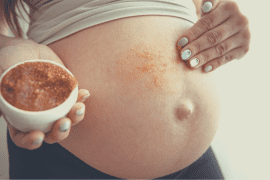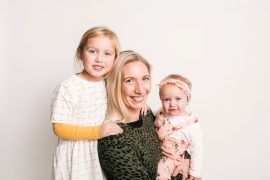
Here are our top five:
- ‘A doula is just like a midwife who is not qualified’
No, they’re actually not, so we thought we’d get this one out of the way first. Unlike a midwife, who oversees the medical aspects of birth, a doula’s expertise lies in offering emotional and practical support, encouragement and reassurance and non-biased information. While doctors and midwives may finish their shift, a doula may stay with her client for the duration of the labour, providing her with much-needed continuity of care. The role of a doula is complementary to, and does not replace, a birth team of medical professionals that may include a midwife, an obstetrician, a GP and/or a paediatrician.
- ‘I don’t need a doula because I have a partner’
Let’s make one thing clear: a doula is not there to replace anyone – not a midwife, not a doctor, and certainly not a partner. They are there to complement the birthing team – to help and support both the labouring woman and her partner, if she has one – it’s not an either/or situation. During and prior to labour, a doula may teach a partner pain-coping strategies to better support the mother-to-be, such as breathing, massage, and positioning. For many partners, it’s their first time too and, whilst they want to do their best, they don’t always know what to do or how. A doula’s presence can help partners play a more active support role in labour and birth with greater confidence. Plus, it is not always culturally appropriate for a male partner to be present at the birth and therefore a doula provides a much-needed reassuring presence and support.
- ‘Doulas get in the way of hospital staff’
This is one that we sometimes hear from doctors who’ve had negative experiences working with doulas in the hospital environment. Doulas are there to provide an enriching and fulfilling birth experience for the labouring woman – and this sometimes means advocating on her behalf. They have likely met with the mother-to-be several times antenatally to discuss any concerns she might have and to create a birth plan. It is not the place of a doula to go against medical advice or undermine the role of the midwife or obstetrician but rather to provide non-biased information so that birthing women can make informed choices about her care. Our team of volunteer doulas are passionate about working alongside and assisting busy hospital staff, which is particularly critical for women who are at-risk of poor maternal health outcomes and lacking support and understanding of the birthing system in Australia. This additional continuous non-medical support and care, on top of what hospitals provide, has a significant impact in improving birth outcomes and satisfaction.
- ‘Doulas are hippies’
Sure, maybe some are but, like all professions, doulas come from all walks of life and have varying spiritual and ideological outlooks and beliefs. They are as varied as any community group and you certainly do not have to be a barefooted, harem-pant wearing earth warrior to be a doula or have a doula! Typically, the women in a position to hire doulas as part of their birth team are educated (white) middle-class Australians who want more support during their pregnancies and labours. At Birth for HumanKIND, we believe that every woman deserves the opportunity to have the best pregnancy, birth and early parenting experience possible – so we exclusively support women who would otherwise not be able to afford the services a doula provides. Women from refugee or asylum seeker backgrounds, young women, women experiencing homelessness, women with issues related to substance misuse, trauma or sexual assault – these are the women we are dedicated to supporting.
- ‘Doulas only support women who want a ‘natural birth’
This is one of the hardest to reconcile with what we know about our doulas. Whether it be a planned or emergency caesarian-section in a hospital, assisted delivery or a drug free birth, our doulas are prepared to support a woman through any labour and birth. Many of the women we work with find it invaluable to have experienced support beside them to deal with unexpected outcomes or complications that may arise. Often a doula has met with the woman a few times before she goes into labour, and so understands and will try to help fulfil the woman’s birth intentions, and be mindful of any religious or cultural considerations. Indeed our doulas at Birth for HumanKIND are required to visit the woman three times antenatally. Doulas support women and families in all kinds of situations, who have different kinds of births planned and make a wide range of parenting choices. The services offered by a doula vary greatly according to the needs of the women, couples or families that she is working with. It’s not a one-size-fits-all approach!
Every week we see the positive impacts of having a doula present on our client’s experiences of pregnancy, birth and early parenting. To find out more about our work and to support our World Doula Week campaign, visit www.birthforhumankind.org
Find Birth For Humankind on Facebook and Instagram.










